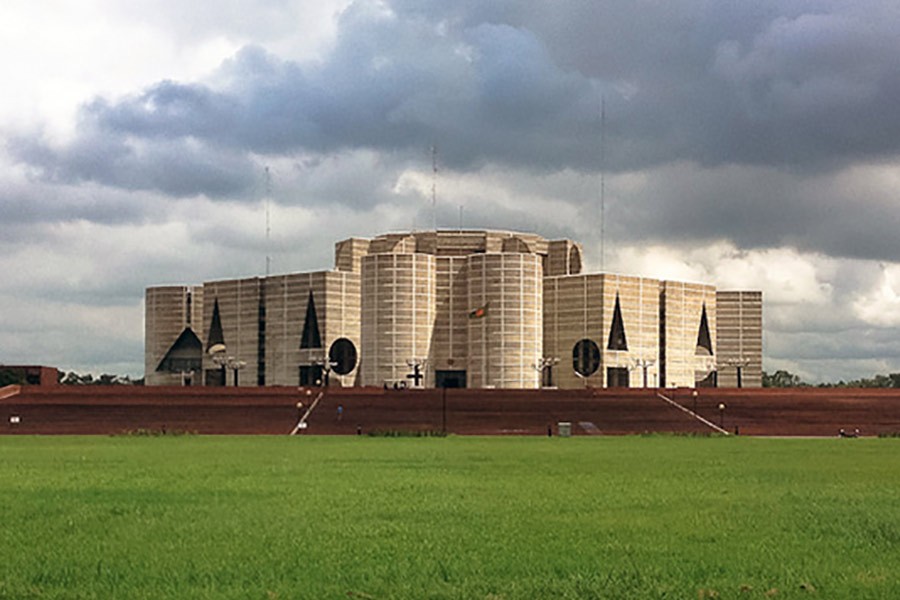
Published :
Updated :

The Awami League-led Grand Alliance is likely to get 248 seats in the upcoming 11th parliamentary election, according to a survey.
The Jatiya Oikyafront (JOF) may win in 49 constituencies and three may go to other candidates, said the survey conducted by the Research and Development Center (RDC), report BSS and bdnews24.com.
The organisation conducted the survey between December 9 and December 16 on Bangladeshi voters participating in the 2018 parliamentary election slated for December 30.
Forrest E Cookson, an American consultant, presented the findings at a news conference at the Westin Hotel in Dhaka on Wednesday.
The sample size of the survey was 2,249 and the respondents were drawn from towns and cities in 51 parliamentary seats, Cookson said.
He said the report accounts for changes to constituencies in the past 27 years and that a previous version of the model had predicted the results of the 2001 and 2008 polls correctly.
The RDC also issued a press release on Wednesday over the findings of the survey.
The release said that the RDC carried out the survey to get the voting intentions of the country’s voters for the upcoming national election.
The survey findings showed that the AL-led Grand Alliance was supported by 60 per cent of the voters; the BNP and JOF by 22 per cent, while the Jatiya Party 4 per cent.
About 10 per cent voters were undecided, 3 per cent refused to answer, and less than 1 per cent did not intend to vote.
This compares with the 2008 parliamentary election where the AL-led alliance received 57 per cent of the votes, the BNP-led grand alliance 37 per cent while others 6 per cent.
The survey findings revealed that voting intentions are the same for men and women and by age group.
The youngest age cohort (age 18-29) is a large section of voters that will be participating in a parliamentary election for the first time.
There is no difference in voting preferences of the young and older voters. Contrary to frequent views expressed, there is no evidence in any change of the political preferences of the young.
Support for the AL-led alliance is relatively weaker in small towns than in large cities and rural areas.
Support for the JOF is relatively stronger in the rural areas and small towns than the big cities. Hindu voters overwhelming support the AL-led alliance.
The press release said the conduct of the survey is politically neutral and is meant to inform the likely outcome of the election.
The survey attempted to determine if the person interviewed intends to vote.
When asked 98 per cent of the voters said that they intend to participate in the election.
The sample for the survey was drawn using the 2011 Population Census to provide information on population of upazilas.
Upazilas were randomly selected with probabilities determined from the Census data.
Once the upazilas were selected, a number of villages (rural) and mahalla (urban) were selected using the census data. For each village or mahalla persons to be interviewed were selected from the voter list for that location.
Sajeeb Wazed, the ICT adviser to the prime minister, had stated on Dec 13 that the Awami League would win between 168 and 220 seats on its own.
Wazed, the son of Sheikh Hasina, had cited an opinion poll conducted by the Research and Development Center.
The Economist Intelligence Unit, the research and analysis division of the Economist Group, also predicted an Awami League win in a report published on Dec 12.
The EIU said the party has overseen solid economic growth in the country and its re-election would be assisted by patronage at the local level.


 For all latest news, follow The Financial Express Google News channel.
For all latest news, follow The Financial Express Google News channel.